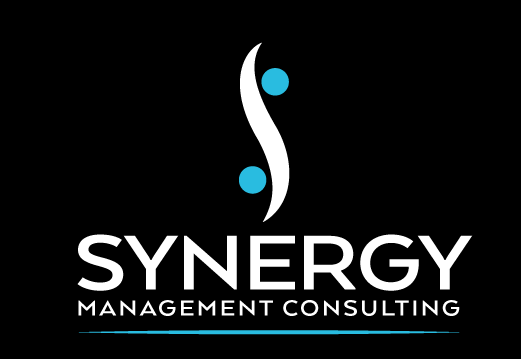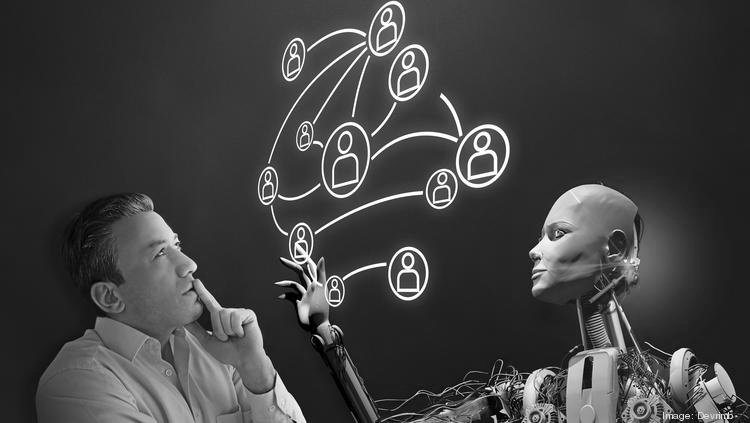AI Has Already Arrived
Simply put, artificial intelligence is a broad-based label to technologies that leverage algorithmic computing to transform vast amounts of data into actionable insight. Such technologies have already become mainstays in modern society through specific uses like Amazon Alexa, IBM Watson, and Google’s Predictive Engine. Companies and industries have such lofty expectations for AI, in fact, that total expenditures in the technology are predicted to rise from $8 billion in 2016 to $47 billion in 2020.
In modern industry, AI teams up with big data in order to provide metrics and predictions that businesses can use to maximize efficiency and effectiveness across nearly any component of operations. With respect to HR functions, AI can be a useful disruptor in a wide variety of applications. A recent survey by IBM found that half of Chief Human Resources Officers already recognize and anticipate the technology’s potential to completely reinvent critical HR responsibilities, including operations, talent acquisition, and talent development. Suffice it to say, AI is on the cusp of transforming many aspects of HR to better equip it for a dynamic, ever-evolving workplace.
1. Reduce Human Bias
Given its reliance on data rather than human intuition and perception, AI removes the potential for skewed human perspectives to inhibit the decision-making process. This can protect an organization from discrimination litigation but also create a more cohesive, communicative workplace.
2. Improve Relationships with Existing Employees
Different aspects of AI can be leveraged to find the nuanced individual characteristics of every employee through engagement surveys and other tools to best pair their personalities and temperaments with particular roles, departments, and co-workers.
3. Improve Efficiency and Insight in Candidate Assessment
Again relying on its ability to recognize and interpret nuance, AI can transform simple resumes, cover letters and communication with candidates into insightful, powerful tools to quickly and efficiently determine if an individual is a good fit for an organization.
4. Increase Predictive Data Decision-Making
The algorithms that provide AI its insightful and prescient abilities, allow it to interpret data sets and create models that can be used to lend decision-making a reliable, predictive quality where decisions impacting today and tomorrow can be made on data from the past.
5. Expand HR as a Resource
By removing many of the resource-consuming responsibilities that have traditionally diluted an HR department’s overall attentiveness, AI allows HR more time and freedom to concentrate on performance management human-based tasks that make it such a critical component of any healthy organization.
6. Become a Tactical and Strategic Asset
By leveraging the data derived from people analytics, HR can become a powerful source of actionable insight to design and implement strategies that can increase operational efficiencies, strictly upon the reliable shoulders of data.
7. Allow More “People Time” for HR
Like its potential to expand HR as a resource, AI can free valuable time for HR to devote to improving the employee experience with a hands-on approach that traditionally wasn’t possible due to time constraints and work loads.
8. Improve Decision-Making and Drive Results
Again through predictive analytics, AI can equip management with insight into employee satisfaction levels, predicting possible future sources of turnover to identify and correct individual, departmental, or systemic issues before they become problematic and costly.
Best Practices for Using Artificial Intelligence in the Workplace
Like most innovations, implementing AI according to its specific strengths will maximize the benefits a company can derive from its use. For HR, relying on AI for particular roles will leverage the technology in the most effective manner possible.
Sentiment Analysis
True feedback is a combination of the quantitative and qualitative. AI-based text analysis systems can help understand the sentiments of an entire organization by placing feedback into positive, neutral and negative sentiment buckets. This helps leaders take an accurate pulse of their organization and, thus, accelerates the feedback transforming into action.
For example, employee engagement can be transformed from a static, infrequent snapshot of worker sentiment into a vital, real-time analysis of the social framework that supports the entire organization. Monitoring employee communication with AI can also measure employee satisfaction by analyzing natural language to quantify the underlying emotions, not just the message itself.

Hyphen’s sentiment analysis helps organizations determine employee sentiment by feedback categories such as leadership, engagement & social connection etc which are completely configurable based on their needs.


Sentiment can also be sliced & diced by employee segments like department, position, company projects, age, tenure, geography and other dimensions which are also on the complete discretion of the organization.
Workplace Issue Understanding
Organizing and dividing feedback into insightful slices is incredibly time-consuming for HR. Machine learning can automatically categorize feedback data into predefined HR categories like work/life balance, compensation and benefits to efficiently help organizations plan the right actions.
A recent study found that 32% of HR departments are already redesigning their organizations to optimize them for adaptability and learning to best integrate the insights garnered from employee feedback and technology.

Hyphen uses machine learning to automatically categorize employee feedback into categories of interest.

HR can use AI to quickly analyze qualitative feedback and organize it by both workplace issue and sentiment.
Smart Assistants
AI-based assistance can drive relevant and contextual alerts to managers based on conversations occurring within an organization to identify what needs to be addressed without wasting any time. Following the lead of Amazon’s Alexa, Microsoft’s Cortana, and Cisco’s Spark smart assistant system, a range of companies are designing various workplace applications to sync with smart assistants.
CapitalOne uses such a system to allow IT to check network systems and receive feedback to proactively make any necessary adjustments.

Hyphen’s AI-driven Smart Assistant which determines the most pressing issues and notifies HR & management, for prioritized action.
Talent Understanding
Smart AI mechanisms can scan, read, and evaluate applicants, quickly eliminating 75 percent of them from the recruiting process. This can drastically increase the quality of hiring decisions and provide a huge timesaver for HR.
For example, Fareportal, a travel technology and booking company, has integrated AI into its “Resume Scorer” tool to analyze a candidate’s resume with respect to the specific skills and criteria of each of its job postings. This allows Fareportal’s HR department to save time and resources by minimizing the laborious process of reviewing resumes by hand and immediately moving to subsequent steps in the recruiting process.
Not only through resumes, AI can also analyze social presence, past job experiences and other factors to analyze a candidate before even the first interview, allowing recruiters to focus on the top candidates and seed out the unfit.
AI determines a numerical rating based on the desired criteria of job candidates.
Chatbot Interactions
AI-powered chatbots can create streamlined and unique employee experiences based on personal interaction with every employee. This would be far too time-consuming without AI assistance and can provide benefits to onboarding procedures, training requirements, and more.
HR leaders are already cognizant of the technology’s importance to the employee experience with 92% stating chatbots will play a significant role in enhancing employee service in the future.

Hyphen’s Slack chatbot, “Hyphy.”
As evidenced by technologies like AI, HR is finally able to embrace and adopt innovations that will provide new efficiencies, minimizing needed resources while maximizing results.
Already enjoyed by other departments within any given organization, HR has taken a leap by starting to incorporate AI-based platforms like chatbots, smart assistants, and various applications of predictive & sentiment analytics to derive the most actionable insight from their talent programs. Although the first step has been made towards the future of work, it’s a journey which organizations need to voyage on.
With the business ecosystem changing, a lot of technology-based businesses are working on helping organizations by providing robust solutions which could directly be implemented in their people programs.
A partner like Hyphen can help any company establish the analytics necessary to take full advantage of the many ways AI can reinvent HR and, therefore, an organization. If AI and people analytics are implemented in a suitable and effective fashion, the future of HR is certainly bright.
Ready to start a conversation about achieving breakthrough results?

